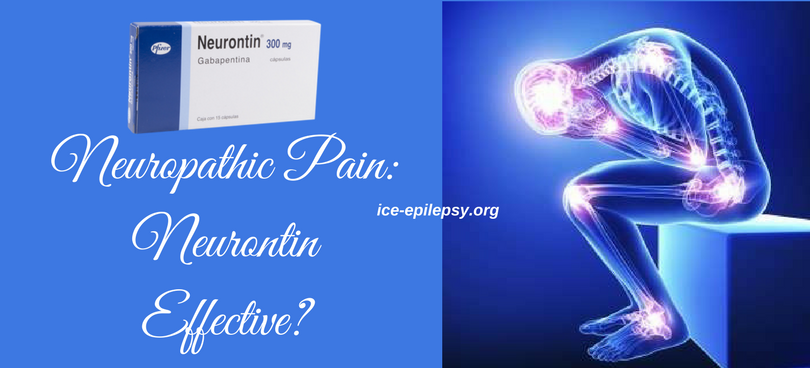Neuropathic pain is a kind of pain caused by damage to the nervous system, both peripheral and central. In the population, they occur in 1.5-2% of cases.
There is a paradoxical situation: a person takes an anesthetic, but the pain does not pass.
What Diseases often Cause Neuropathic Pain?
First of all, it is diabetic polyneuropathy. Along with other symptoms in patients – reduced reflexes, numbness, dry skin -, there are persistent, burning, intense pains that hurt the patient day and night and do not respond to any analgesics.
Another characteristic example of neuropathic pain is postherpetic neuralgia. It develops in the elderly after suffering herpes zoster. At the beginning of the disease, there are painful rashes in the chest area. But after the rash passes, in some patients the pains persist and go to a prolonged phase, called postherpetic neuralgia.
Neuropathic pains occur with mononeuropathies, injuries of peripheral nerves and plexuses. Phantom pain in patients who underwent amputations is also considered neuropathic. In 60% of patients, neuropathic pain develops within the first year after a spinal cord injury.They also occur in case of:
- multiple sclerosis;
- syringomyelia;
- tumors;
- state after cerebral strokes (post-stroke central pain).
At the heart of neuropathic pain is the disruption of the systems responsible for controlling pain, which occurs as a result of their defeat in various nervous system diseases.
It should also be noted a number of syndromes where the pain syndrome is mixed, i.e., both nociceptive and neuropathic components are present. These include radicular pain (radiculopathy), oncological pains, tunnel syndromes.
What is the Treatment for Neuropathic Pain?
Since neuropathic pains cannot be treated with traditional anesthetic drugs, today drugs from other groups are used for the treatment of neuropathic pain syndromes. These are:
- antidepressants;
- anticonvulsants – (for an example: Neurontin painkiller);
- local anesthetics;
- opiates.
It may seem that some of these drugs have nothing to do with pain. But this is not 100-% true. Effective in the pain treatment will be all those drugs that allow you to work on systems that control pain.
It is known that a person in the brain has several systems capable of modulating and controlling pain. By prescribing antidepressants, the physician is able to influence the serotonin production and noradrenergic systems performance. The more serotonin is, the better the systems that affect pain work, the more noradrenaline is – the less pain as a result. The most effective non-selective drugs are tricyclic antidepressants, in particular, amitriptyline, and inhibitors of reuptake of serotonin and norepinephrine – duloxetine.
Anticonvulsants such as Neurontin (Gabapentin) are very effective in the neuropathic pain. This group of drugs has a rich history (for example, nerve pain medication Neurontin). Their antiallergic efficacy is associated with the mechanism of blocking the sodium ion channels of peripheral nerves. But among modern anticonvulsants, there are drugs that act in the synapse at the posterior horn, where the first sensory neuron is joined to the second one. These drugs are Neurontin pain medicine and Pregabalin. The transmitter in this synapse is glutamate, and when neuropathic pain occurs, this synapse works redundantly, which helps maintain pain.
How does Gabapentin Work for Pain?
Gabapentin works for pain acting through a mediated calcium mechanism block the release of glutamate into the synaptic cleft, thereby contributing to the reduction of nociceptive transmission in the synapse and consequently reduce the intensity of pain. These drugs are indicated for peripheral and central neuropathic pain.
If There are Drugs with which You can Treat Neuropathic Pain well, why are They not Assigned to Patients?
The problem is that patients, and often doctors, do not understand why complex psychotropic drugs (antidepressants) or drugs for the treatment of epilepsy (anticonvulsants such as Gabapentin) are needed to treat pain. Therefore it is good that in the annotations to new drugs Neurontin and Pregabalin already indicated an independent indication for neuropathic pain relief. It should be emphasized that the doctor’s task is not only the appointment of the right drug but also an adequate explanation to the patient for what this drug is prescribed, the timing of the expected effect, possible side reactions.
Gabapentin and pregabalin have undergone multiple clinical studies in America and Europe in accordance with the principles of evidence-based medicine and today stand in the first place in the treatment of all types of neuropathic pain. Further prospects for the development of medical science are associated with the development of drugs specifically for the neuropathic pain treatment, regardless of etiology.